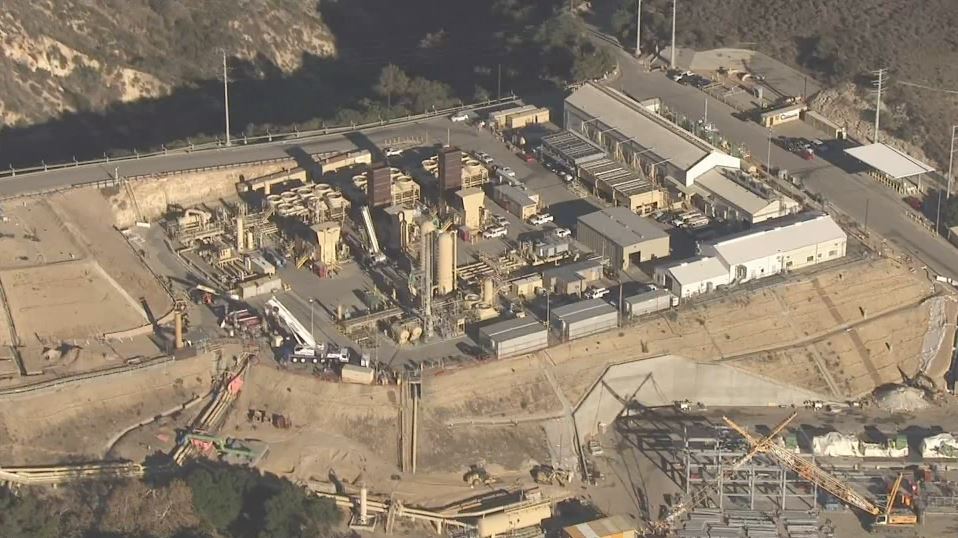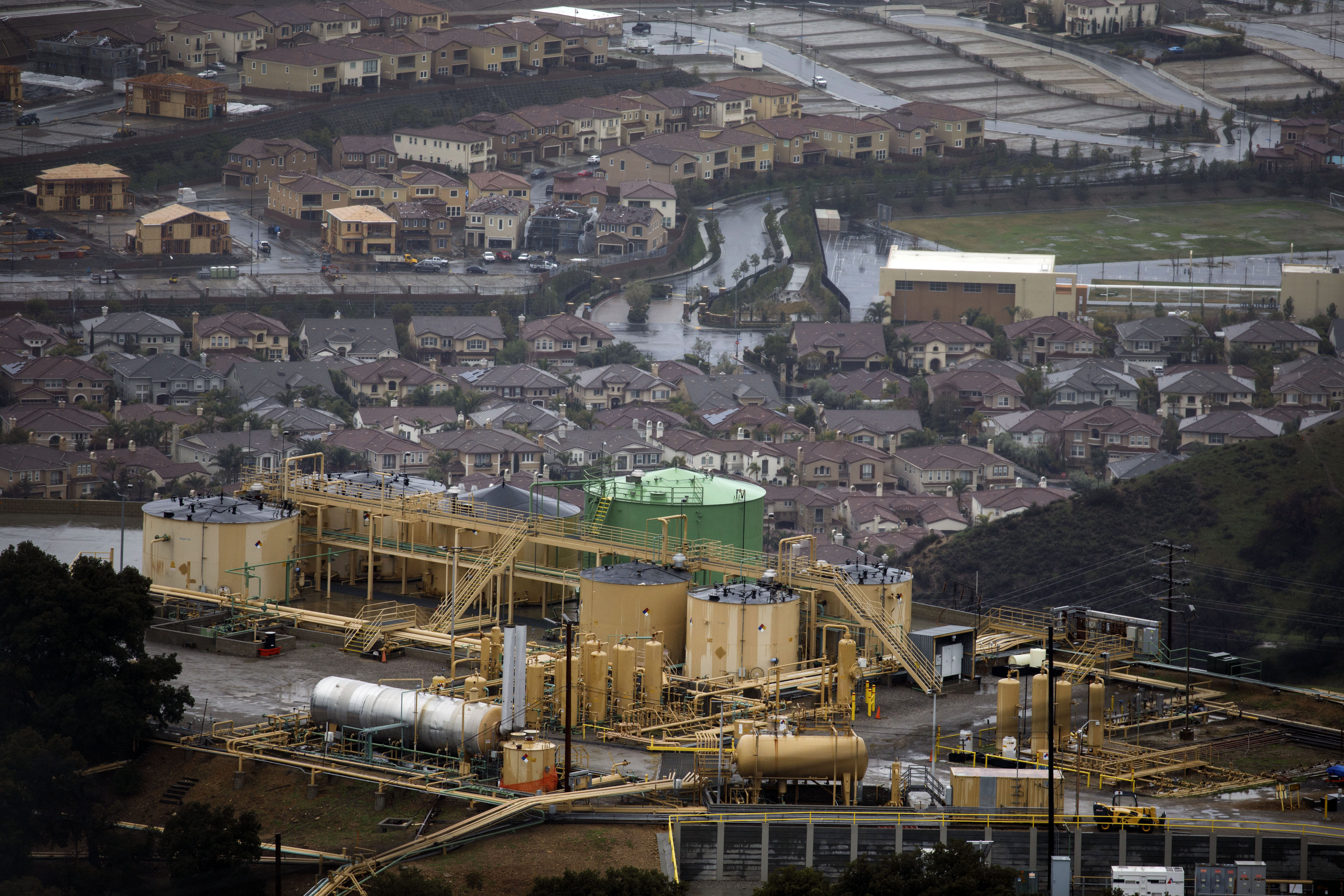Many Southern Californians remember this past winter when gas bills skyrocketed. Some residents across Los Angeles County were forced to pay hundreds of dollars extra each month.
Now, a proposal is on the table that officials say will keep those prices from soaring again: possibly expanding the capacity of the Aliso Canyon Natural Gas Storage Facility just north of Los Angeles in Porter Ranch.
The California Public Utilities Commission is set to vote on the proposal on Thursday.
The Aliso Canyon facility was the site of the largest natural gas leak in U.S history in 2015. The leak released a toxic mix of chemicals into the San Fernando Valley for four months before the leak was capped. The accident forced the evacuation of nearly 10,000 nearby residents.
Get Southern California news, weather forecasts and entertainment stories to your inbox. Sign up for NBC LA newsletters.
Now, SoCal Gas, which owns the site, wants to expand the storage capacity of the site, telling the NBC4 I-Team it would maintain “energy reliability at just and reasonable rates.”
“I’m scared. I’m scared for my family, I’m scared for other families,” said longtime resident Patty Glueck.
Glueck bought her home within miles of the Aliso Canyon site almost 30 years ago, when she says she had no idea what the facility was used for. She says since the 2015 leak, her family has experienced health problems she believes are caused by the chemicals emitted from the site, though she can’t prove it.
“My husband is a retiree, so it would be nice for him to enjoy life without feeling that this place is making him sick,” Glueck told the I-Team.
The proposal before the CPUC would increase the facility’s capacity from 41.16 billion cubic feet to 68.6 billion cubic feet, the highest limit allowed there. The CPUC says the increase would be “on an interim basis to help secure energy reliability and protect against high natural gas and electric prices.”
“Scares me to death,” said Granada Hills resident Helen Attai.
Her family bought their home miles from the site more than 20 years ago, for the good schools for her children. Attai said her family has been sick as well.
“As a mom, I have a lot of guilt because we moved here for their well-being and being successful and good studying and not knowing what you’re exposing them to,” Attai told the I-Team.
“This is a health risk issue, and that should be paramount,” said Issam Najm, who also lives near the site and has been an outspoken critic of its continued operation.
Najm points to findings reported by South Coast Air Quality Management that show levels of toxic chemicals emitting from the site as recently as 2021. Those chemicals include Benzene, a substance known to cause cancer.
“The more this facility is in use, the more toxic chemicals it’s going to emit into the air and into the lungs of everyone in this community,” Najm told the I-Team.
However, the levels of chemicals shown in the SCAQM report are not considered against regulations.
An evaluation of the 2015 leak by the California Office of Environmental Health Hazard Assessment reported “any increase in cancer risk to people in the area due to Benzene emissions from the natural gas leak is likely very small.” The report also said, “The symptoms reported by many … residents can be attributed to odorants in the natural gas.”
But because of ongoing concerns from residents, late last year the LA County Department of Public Health partnered with UCLA to begin a large study of the potential short- and long-term health impacts from the 2015 leak.
SoCal Gas didn’t answer the I-Team’s specific questions, but sent a statement saying, “Aliso Canyon is held to the most rigorous monitoring, inspection and safety requirements in the nation.”
The CPUC told the I-Team the proposed storage expansion “will not impact progress in the proceeding towards phasing out the need for Aliso Canyon.”
Officials have long promised the facility would cease operation before 2027.
“They need to close it down so people feel safe,” said Issam Najm.
The vote by the CPUC is scheduled for 11 p.m. Thursday.



